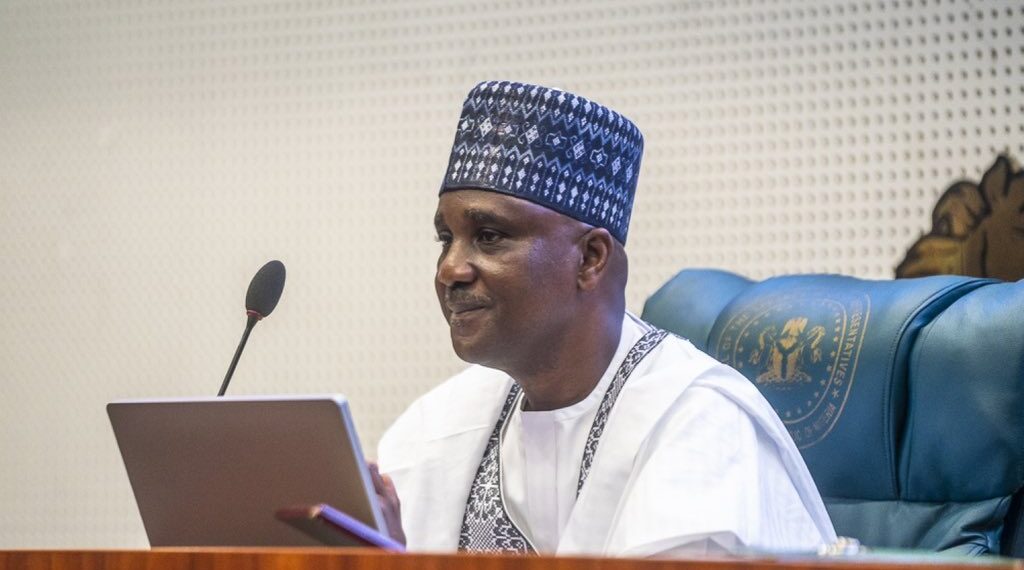The Speaker of the House of Representatives, Tajudeen Abbas, emphasized the legislative branch’s vital role in fostering sustainable democracy in Nigeria during a recent presentation of the Parliamentary Development Programme at the National Assembly Complex in Abuja. This initiative is designed to enhance the legislative capacity of Nigeria’s National Assembly, which Abbas believes is crucial for implementing reforms and ensuring accountability within the government. He articulated that a robust legislature serves as the backbone of democracy, asserting that the success of the Parliamentary Development Programme is an investment in the nation’s democratic foundation. The program aims to address long-standing issues of under-resourcing and underdevelopment that the legislature has faced compared to the executive and judicial branches of government.
Abbas noted that the establishment of this programme came at a critical time, aligned with the ambitious legislative agenda set by the newly inaugurated 10th House and the reform-driven vision of President Bola Ahmed Tinubu. He pointed out that both the National Assembly and the Executive branches share a commitment to transformative reforms across various sectors, including the economy, security, and social welfare. Abbas expressed optimism that the Parliamentary Development Programme would enhance the National Assembly’s institutional capacity, enabling it to support the administration’s agenda effectively, thereby facilitating national development initiatives outlined in the government’s reform strategy.
One significant challenge highlighted by Abbas is the high turnover rate within the legislature, which can lead to disruptions in governance and the erosion of institutional memory. He cited the election of 281 new members out of 360 in the 10th Assembly, emphasizing the need for continuous capacity-building initiatives to equip newly elected legislators with the necessary skills and knowledge. By focusing on institutional strengthening, Abbas believes that a more resilient legislature can emerge, capable of effectively driving critical reforms essential for Nigeria’s development. He underlined that legislative law-making and oversight are fundamental to addressing the numerous challenges confronting Nigeria today, making investment in the National Assembly’s capacity crucial for the future of the nation.
The Resident Representative of the United Nations Development Programme (UNDP) in Nigeria, Elsie Attafuah, praised the Parliamentary Development Programme as a significant milestone in efforts to reinforce governance and encourage democratic processes in Nigeria. Meanwhile, Deputy Speaker Benjamin Kalu raised concerns about the under-representation of women, youth, and marginalized groups in parliamentary decision-making processes. During the event, Kalu discussed the challenges faced by parliaments globally, including limitations in oversight capabilities and a lack of inclusivity, which hinder effective governance. He stressed the urgent need for gender-responsive budgeting and public finance management to enhance parliamentary effectiveness, ensuring that all demographics have a voice in national development decisions.
Kalu advocated for a “whole-of-society” approach to governance, which involves integrating government ministries, independent oversight bodies, civil society, and media to bolster transparency and accountability in legislative processes. He emphasized the necessity of building local ownership for sustainable parliamentary development, suggesting that empowering parliament members through multi-party reform committees is essential in setting institutional priorities. Additionally, he noted the importance of addressing governance challenges at both national and local levels, encouraging member involvement and input in legislative priorities to foster an inclusive approach to parliamentary development.
The Deputy Speaker’s remarks underscored the need for public participation in parliamentary advancements, highlighting that advocacy efforts should aim to enhance public trust in the legislative branch. Kalu’s call for comprehensive stakeholder involvement stresses that building institutional capacity cannot occur in isolation from the community’s needs, advocating for a collaborative approach in addressing Nigeria’s pressing national challenges. He concluded by asserting that all stakeholders should focus on protecting the integrity of the legislature and democracy as a whole, as success in these areas is imperative for achieving Nigeria’s developmental goals and facilitating the collective aspirations of its citizens.














